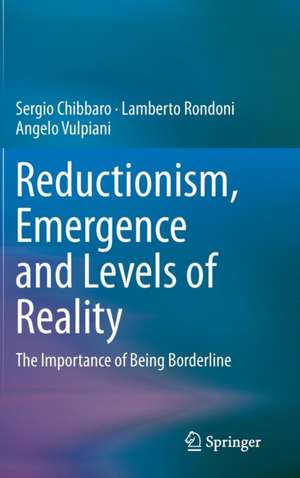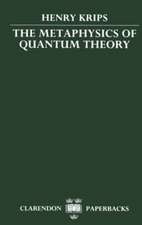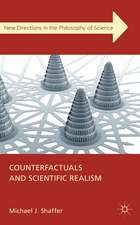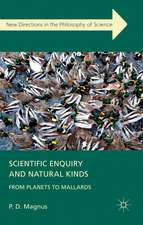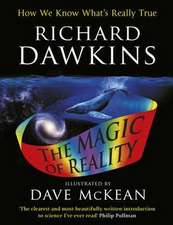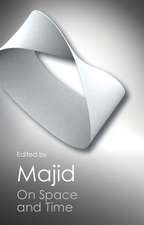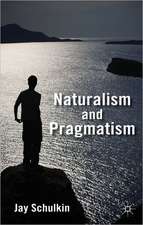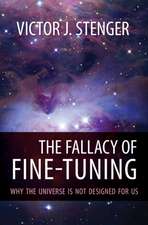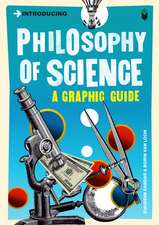Reductionism, Emergence and Levels of Reality: The Importance of Being Borderline
Autor Sergio Chibbaro, Lamberto Rondoni, Angelo Vulpianien Limba Engleză Hardback – 28 mai 2014
Rather than an analysis of full reductionism, this book focuses on aspects of theory reduction in physics and stimulates reflection on related questions: is there any evidence of actual reduction? Are the examples used in the philosophy of science too simplistic? What has been endangered by the search for (the) ultimate truth? Has the dream of reductionist reason created any monsters? Is big science one such monster? What is the point of embedding science Y within science X, if predictions cannot be made on that basis?
| Toate formatele și edițiile | Preț | Express |
|---|---|---|
| Paperback (1) | 939.00 lei 43-57 zile | |
| Springer International Publishing – 17 sep 2016 | 939.00 lei 43-57 zile | |
| Hardback (1) | 946.55 lei 43-57 zile | |
| Springer International Publishing – 28 mai 2014 | 946.55 lei 43-57 zile |
Preț: 946.55 lei
Preț vechi: 1154.34 lei
-18% Nou
Puncte Express: 1420
Preț estimativ în valută:
181.15€ • 188.42$ • 149.55£
181.15€ • 188.42$ • 149.55£
Carte tipărită la comandă
Livrare economică 14-28 aprilie
Preluare comenzi: 021 569.72.76
Specificații
ISBN-13: 9783319063607
ISBN-10: 331906360X
Pagini: 180
Ilustrații: XXI, 154 p. 13 illus., 4 illus. in color.
Dimensiuni: 155 x 235 x 17 mm
Greutate: 0.48 kg
Ediția:2014
Editura: Springer International Publishing
Colecția Springer
Locul publicării:Cham, Switzerland
ISBN-10: 331906360X
Pagini: 180
Ilustrații: XXI, 154 p. 13 illus., 4 illus. in color.
Dimensiuni: 155 x 235 x 17 mm
Greutate: 0.48 kg
Ediția:2014
Editura: Springer International Publishing
Colecția Springer
Locul publicării:Cham, Switzerland
Public țintă
ResearchCuprins
Preface.- A Galilean Dialogue.- A random journey.- History.- Reductionism: the philosophical point of view.- Reduction in physics and philosophy.- Emergence.- A first attempt to tame complexity.- A short history of statistical mechanics.- Towards a systematic theory.- The paradigmatic Brownian motion.- Critical Phenomena.- Discussion.- From microscopic to macroscopic realities.- The problem of irreversibility.- Irreversibility and emergence.- From microscopic to macroscopic equations.- From atoms to cold fronts.- Concluding remarks.- Determinism, chaos and reductionism.- General remarks on determinism.- An excursus on chaos.- Chaos and complexity.- Chaos and probability.- Quarrels on chaos and determinism.- Concluding remarks.- Quantum Mechanics.- Classical versus quantum mechanics.- Chemistry vs applied Quantum Mechanics.- Summary and conclusions.- Some conclusions.- Unity of science beyond reductionism.- It from bit?.- Concluding remarks.
Textul de pe ultima copertă
Scientists have always attempted to explain the world in terms of a few unifying principles. In the fifth century B.C. Democritus boldly claimed that reality is simply a collection of indivisible and eternal parts or atoms. Over the centuries his doctrine has remained a landmark, and much progress in physics is due to its distinction between subjective perception and objective reality. This book discusses theory reduction in physics, which states that the whole is nothing more than the sum of its parts: the properties of things are directly determined by their constituent parts. Reductionism deals with the relation between different theories that address different levels of reality, and uses extrapolations to apply that relation in different sciences. Reality shows a complex structure of connections, and the dream of a unified interpretation of all phenomena in several simple laws continues to attract anyone with genuine philosophical and scientific interests. If the most radical reductionist point of view is correct, the relationship between disciplines is strictly inclusive: chemistry becomes physics, biology becomes chemistry, and so on. Eventually, only one science, indeed just a single theory, would survive, with all others merging in the Theory of Everything. Is the current coexistence of different sciences a mere historical venture which will end when the Theory of Everything has been established? Can there be a unified description of nature?
Rather than an analysis of full reductionism, this book focuses on aspects of theory reduction in physics and stimulates reflection on related questions: is there any evidence of actual reduction? Are the examples used in the philosophy of science too simplistic? What has been endangered by the search for (the) ultimate truth? Has the dream of reductionist reason created any monsters? Is big science one such monster? What is the point of embedding science Y within science X, ifpredictions cannot be made on that basis?
Rather than an analysis of full reductionism, this book focuses on aspects of theory reduction in physics and stimulates reflection on related questions: is there any evidence of actual reduction? Are the examples used in the philosophy of science too simplistic? What has been endangered by the search for (the) ultimate truth? Has the dream of reductionist reason created any monsters? Is big science one such monster? What is the point of embedding science Y within science X, ifpredictions cannot be made on that basis?
Caracteristici
Covers the subtle matters of reduction and emergence from the informed perspective of physicists With a foreword from the Wolf Prize laureate Sir Michael Berry Also of interest to philosophers of science, reductionists as well as non-reductionists Includes supplementary material: sn.pub/extras
